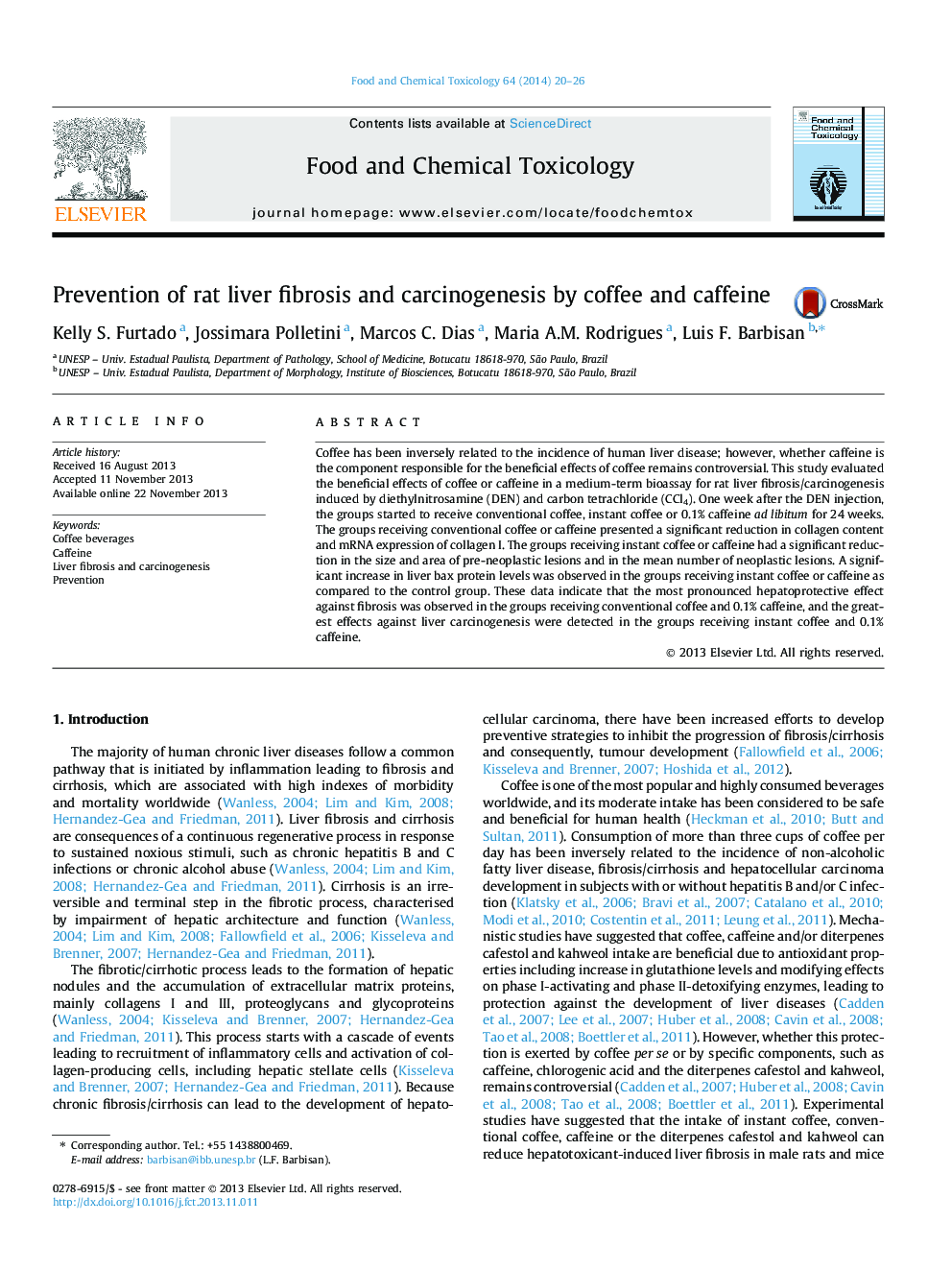| Article ID | Journal | Published Year | Pages | File Type |
|---|---|---|---|---|
| 5850861 | Food and Chemical Toxicology | 2014 | 7 Pages |
â¢Conventional coffee or caffeine intake reduced the liver collagen content and collagen I mRNA levels.â¢Instant coffee or caffeine intake inhibited the development of hepatocellular pre-neoplastic and neoplastic lesions.â¢Coffee beverages are potential functional food against liver fibrosis and carcinogenesis.
Coffee has been inversely related to the incidence of human liver disease; however, whether caffeine is the component responsible for the beneficial effects of coffee remains controversial. This study evaluated the beneficial effects of coffee or caffeine in a medium-term bioassay for rat liver fibrosis/carcinogenesis induced by diethylnitrosamine (DEN) and carbon tetrachloride (CCl4). One week after the DEN injection, the groups started to receive conventional coffee, instant coffee or 0.1% caffeine ad libitum for 24Â weeks. The groups receiving conventional coffee or caffeine presented a significant reduction in collagen content and mRNA expression of collagen I. The groups receiving instant coffee or caffeine had a significant reduction in the size and area of pre-neoplastic lesions and in the mean number of neoplastic lesions. A significant increase in liver bax protein levels was observed in the groups receiving instant coffee or caffeine as compared to the control group. These data indicate that the most pronounced hepatoprotective effect against fibrosis was observed in the groups receiving conventional coffee and 0.1% caffeine, and the greatest effects against liver carcinogenesis were detected in the groups receiving instant coffee and 0.1% caffeine.
